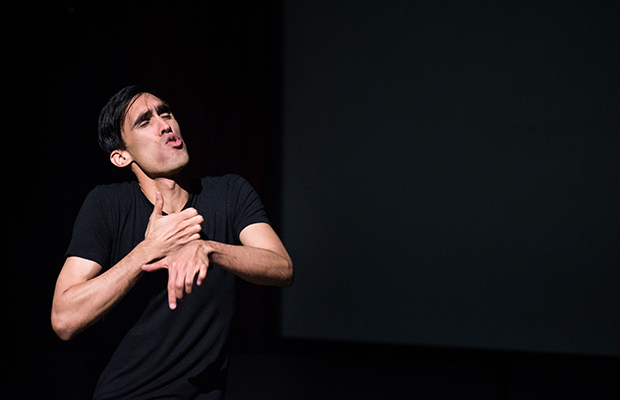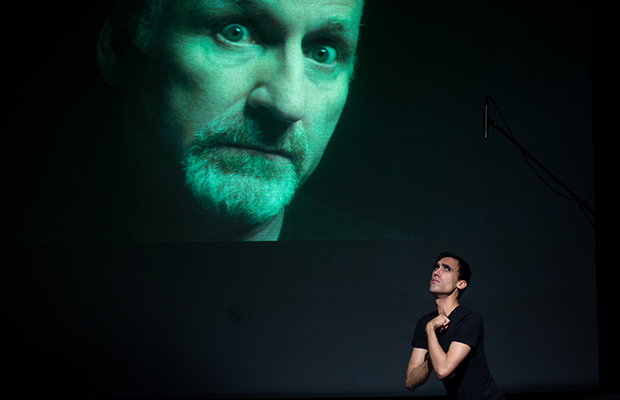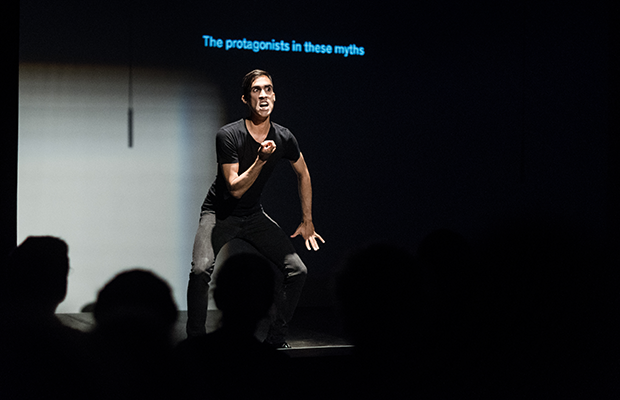Dharmoo points to the “inter-traditional” aspects of his work with Bhagwati’s Sound of Montreal ensemble as an important influence. The ensemble, co-directed by Bhagwati and Kiya Tabassian, brings together musicians trained in a variety of musical traditions—from Iranian and Turkish to Western styles of jazz or electronic music—and asks them to create work together.
“My position as a bi-cultural person working in a Western context informs what I do,” says Dharmoo, who spent time studying Carnatic music in Chennai, India.
Bhagwati, who serves as Canada Research Chair in Inter-X Art Practice and Theory, sees the hybridity of Dharmoo’s work as a major strength.
“His compositions are hybrid adventures in the different languages of music that make up his different chosen traditions and experiences: compositions aware of a world that is changing away from western dominance and that opens up to the aesthetics, predilections and requirements of a more entangled, multi-ethnic, multi-traditional and polysemic world.”
Bhagwati is glad to see Dharmoo get institutional recognition for his work.
“It is a good thing that the jury of the Jules-Léger Prize has recognized the outstanding quality of this young composer's work and the fervent musicality that shapes every note of his writings,” says Bhagwati.
"It is an even better sign that they have chosen someone who, through his practice, poses a challenge to the concept of new music itself. I deeply respect honorable and hallowed institutions that can question their mode of existence, and in doing so, renew their connection to the community they serve.”
For a firsthand experience of Dharmoo’s work, see his piece Anthropologies Imaginaires on March 7th and 8h at Usine C or his noise opera, À chaque ventre son monstre, with text by Françoise Major, on April 13 at Maison de la culture Frontenac.


 Gabriel Dharmoo, performing Anthropologies imaginaires in Vancouver. Photo by Jan Gates.
Gabriel Dharmoo, performing Anthropologies imaginaires in Vancouver. Photo by Jan Gates.
 Gabriel Dharmoo, performing Anthropologies imaginaires. Photo by Jan Gates.
Gabriel Dharmoo, performing Anthropologies imaginaires. Photo by Jan Gates.
 Gabriel Dharmoo, performing Anthropologies imaginaires. Photo by Marion Desjardins.
Gabriel Dharmoo, performing Anthropologies imaginaires. Photo by Marion Desjardins.